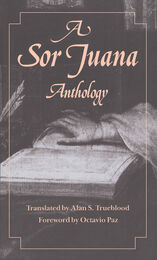
Regarded by many as the finest poet of twentieth-century Spain, Antonio Machado y Ruiz (1875–1939) is not well known outside the Spanish-speaking world. This volume will introduce him to Anglo-American readers, enabling them to experience at first hand the subtle nuances of his verse. Some two hundred fifty poems in Spanish, drawn from Machado’s entire oeuvre, are accompanied on facing pages by sensitive and beautifully fluent translations which render the originals accessible to the mind and the ear.
Alan S. Trueblood annotates the individual poems, placing them in context and illuminating their allusions and undertones. In addition, he provides a substantial biographical and critical Introduction. This gives an overview of Machado’s life, as a poet and teacher and wide-ranging commentator on cultural, political, and social affairs. (Forced into exile at the end of the Civil War, he crossed the Pyrenees on foot and died a month later.) The Introduction also discusses the qualities of Machado’s predominantly quiet and reflective verse, as well as the development of the thought of this major poet.

This is a major book about one of the luminaries of the golden age of Spanish literature. In spite of his great reputation, Lope de Vega is to most of us merely a name, in part because of the prodigious quantity and variety of his plays and other writings in verse and prose. Alan Trueblood's book does not pretend to survey all of Lope's works or to touch on all the events of his colorful career; yet it probes the mind and heart, and art, of Lope as no other study in English has done.
Trueblood pursues the artistic consequences of a key experience in Lope's life, the four-year love affair with Elena Osorio that terminated violently in 1587. (The rejected Lope, age twenty-five, wrote slanderous verses about Elena's family and associates, was jailed on charges of libel, and was sentenced to ten years' exile.) Notwithstanding his subsequent marriages and liaisons, his mounting literary fame in Spain and abroad, and his eventual dedication to the Church as a priest, for forty-five years this experience reverberated intermittently in his writings, culminating in the great prose dialogue La Dorotea. Trueblood's demonstration of the increasing objectivity and sympathy with which Lope treats Elena/ Dorotea--in ballads, in sonnets, in plays, in La Dorotea--is psychologically as well as aesthetically revealing.
Trueblood provides by far the fullest analysis and elucidation of Lope's masterpiece, La Dorotea, that it has ever received--and in the process he probes the nature of literary creativity, the symbiosis between personal experience and artistic expression, in contexts going well beyond Lope and his age. Because the book will appeal to many readers who do not know Spanish, all quotations have been translated into English.

Here is a new voice—new to us—reaching across a gap of three hundred years. Sor (Sister) Juana Inés de la Cruz was acclaimed in her time as “Phoenix of Mexico, America’s Tenth Muse”; a generation later she was forgotten. In our century she was rediscovered, her works were reissued, and she is now considered one of the finest Hispanic poets of the seventeenth century. She deserves to be known to English-speaking readers for another reason as well: she speaks directly to our concern for the freedom of women to realize themselves artistically and intellectually.
Her poetry is surprising in its scope and variety. She handled with ease the intricate verse forms of her day and wrote in a wide range of genres. Many of her lyrics reflect the worldliness and wit of the courtly society she moved in before becoming a nun; some, composed to be sung, offer charming glimpses of the native people, their festivities and colorful diversity. Alan Trueblood has chosen, in consultation with Octavio Paz, a generous selection of Sor Juana’s writings and has provided an introductory overview of her life and work. The short poems, and excerpts from her play The Divine Narcissus, are accompanied by the Spanish texts on facing pages. Her long philosophical poem, First Dream, is translated in its entirety, as is her famous autobiographical letter to the Bishop of Puebla, which is both a self-defense and a vindication of the right of women to cultivate their minds.
The Anthology was conceived as a companion to the English-language edition of Octavio Paz’s magisterial study of Sor Juana. On its own, it will be welcomed as the first representative selection in English of her verse and prose.
READERS
Browse our collection.
PUBLISHERS
See BiblioVault's publisher services.
STUDENT SERVICES
Files for college accessibility offices.
UChicago Accessibility Resources
home | accessibility | search | about | contact us
BiblioVault ® 2001 - 2024
The University of Chicago Press









